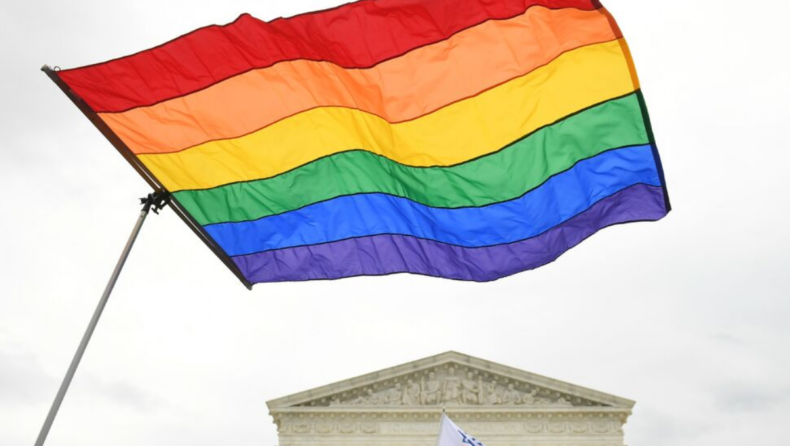After the historic overturn of Roe v Wade by the U.S. Supreme Court, other precedents such as legalizing gay marriage, LGBTQ rights, and same-sex intimacy fall under the radar.
Highlights:
- The reversal of Roe v Wade opened doors to overturn LGBTQ rights.
- Justice Clarence Thomas signals new targets for the Supreme Court.
The historic overturn of the constitutional right to abortion sent shockwaves across the world with the LGBTQ community fearing the most. The U.S. Supreme Court’s decision to reverse Roe v Wade threatened the decisions granting gay rights and same-sex marriage.
The opinion from Justice Clarence Thomas to reconsider other settled precedents of the court fueled fear among women and the LGBTQ community. Thomas wrote that in all future cases, the Court’s substantive due process precedents will be reconsidered including Griswold, Lawrence, and Obergefell.
The Griswold, Lawrence, and Obergefell decision:
In 1965, the Griswold v Connecticut was a historic decision by the U.S. Supreme Court protecting the liberty of married couples to buy and use contraceptives without government restriction. The Connecticut Comstock law prohibited the use of any drugs or medicines to prevent contraception. In a 7-2 ruling, the law was overturned as it violated the right to marital privacy.
Lawrence vs Texas was a landmark decision in which the U.S. Supreme Court ruled that criminal punishment for those who commit buggery/sodomy is unconstitutional. In a n a 6-3 ruling, the sodomy law in Texas was struck down by the U.S. Supreme Court. The Roe v Wade case provided a foundational base to the court reaffirming the “rights to privacy”.
Obergefell v. Hodges decision in 2015 is a historic civil-rights case in which the Supreme Court of the United States guaranteed the fundamental right to marry same-sex couples. The 5-4 ruling declared all states to recognize the marriages of same-sex couples on the same foundation and terms of marriages of opposite-sex couples. Obergefell v Hodges is the incorporation of six lower-court cases from Michigan, Ohio, Kentucky, and Tennessee. On June 26, 2015, Obergefell reversed Baker and ordered all states to issue marriage certificates to same-sex couples.
The Roe v Wade overturn impact:
The advocates for the LGBTQ community raised concerns over Justice Clarence Thomas’s concurring opinion on overturning Roe v Wade. The activists and the advocates called it a political assault on a wide array of Americans’ civil rights. Justice Samuel Alito tried to alleviate the fears stating that the overturn of the abortion case doesn’t affect other precedents. Alito added that the decision should not cast a shadow on precedents that don’t concern abortion. However, Thomas’s opinion contradicted Alito’s assurances.
The landmark decisions of Griswold, Lawrence, and Obergefell rely on the doctrine of substantive due process. In his opinion, Justice Thomas argued that the “substantive due process” lacks any basis in the Constitution and is ‘demonstrably erroneous’.
The opinion of conservationist justice has sparked fear and outrage among women and LGBTQ community threatening their fundamental rights. LGBTQ advocates had previously warned about Justice Thomas issuing circulars against the 2015 same-sex marriage case.
Jim Obergefell, the main plaintiff in the 2015 Obergefell v Hodges case which legalized same-sex marriage, expressed concerns over the overturn of Roe v Wade. He said,” When one right is taken away, every other right we’ve come to rely on in this country is at risk. It’s a dark day for civil rights in our nation.” Further, Mr. Obergefell said, “Justice Thomas makes it clear, once again, that he does believe some of us are more equal than others — that some of us don’t deserve to commit to the person we love.”













